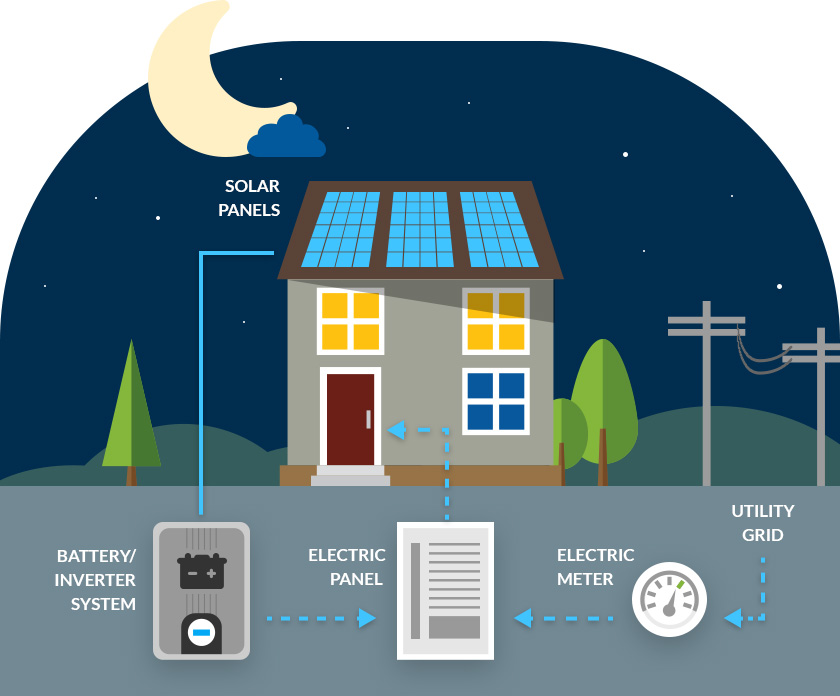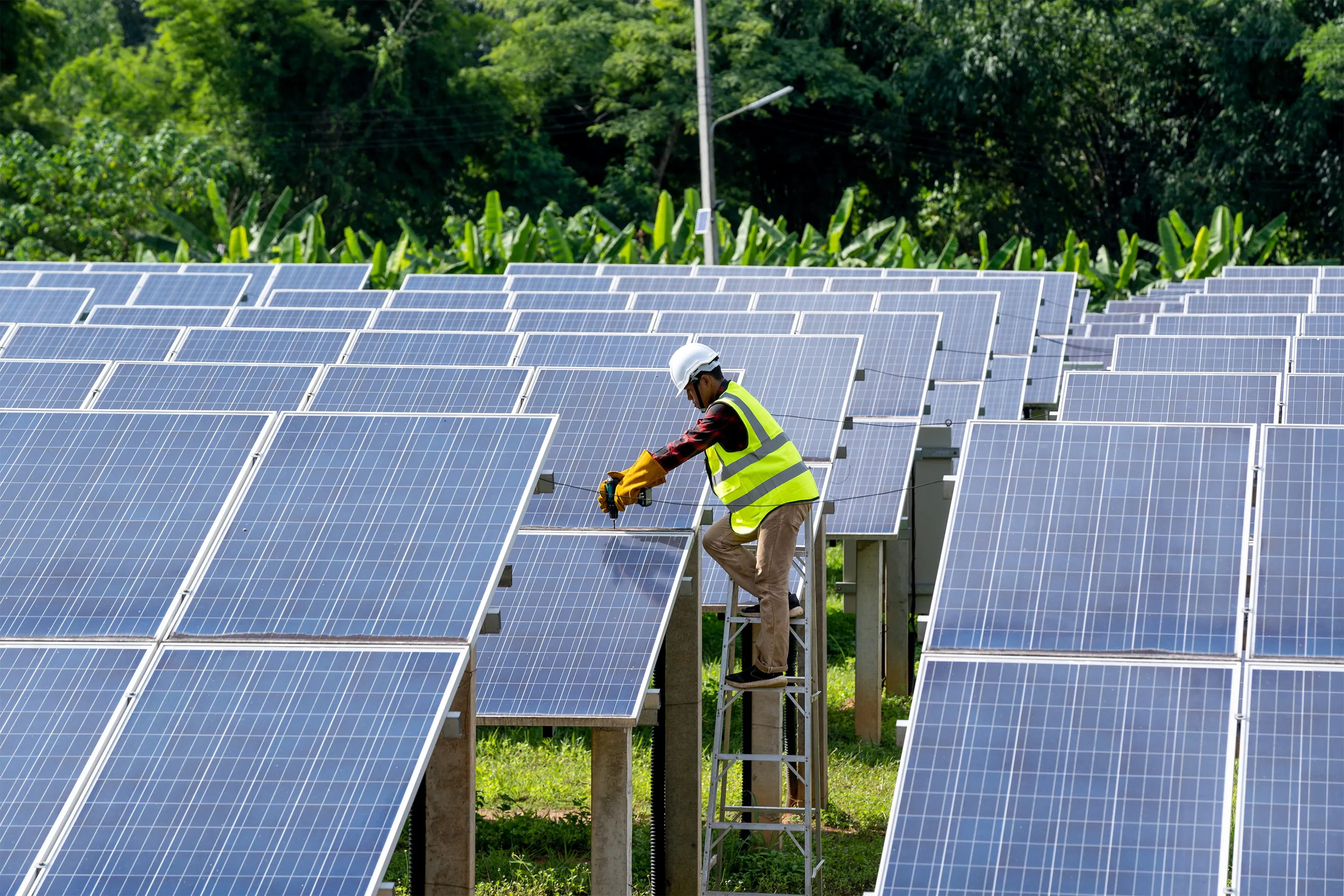Things about Best Solar Panel Company Virginia
Things about Best Solar Panel Company Virginia
Blog Article
Certified Solar Installers Virginia: Lumina Solar Concentrates On Offering Advanced Photovoltaic Solutions For Houses And Businesses
History and Founding
Have you ever wondered how a solar panel business springs from a simple trigger of inspiration into a powerhouse of renewable resource? It frequently begins with a vision-- one fueled by a mix of innovation, read more determination, and a pinch of serendipity. The journey of many solar companies mirrors the evolution of the innovation itself: from bulky, ineffective panels to smooth, high-efficiency marvels utilizing the sun's bounty.
The Early Days
In the late 20th century, when solar energy was still a niche concept, pioneers planted seeds for what would end up being a worldwide movement. Imagine a small workshop filled with curious engineers, tirelessly explore solar batteries. Their enthusiasm was palpable, often driven by a desire to combat climate change and reduce dependence on nonrenewable fuel sources.
One such anecdote has to do with a founder who, influenced by a camping journey, understood that even in remote areas, the sun could power important devices. This basic observation stimulated a company's objective to equalize access to tidy energy.
Founding Principles

- Development: Continuously pushing the boundaries of solar technology to enhance efficiency and sturdiness.
- Sustainability: Devoting to environmentally friendly production and minimizing carbon footprints.
- Availability: Making eco-friendly energy options cost effective and practical for daily users.
Turning points in Growth
| Year | Key Occasion |
|---|---|
| 1985 | Company founded in a small garage, focusing on research and development. |
| 1995 | Very first industrial photovoltaic panel product launched, getting local attention. |
| 2005 | Expanded to global markets, embracing worldwide renewable resource objectives. |
| 2015 | Presented advanced solar panel innovation with improved energy conversion. |
Isn't it remarkable how these incremental actions, often ignored, form the energy landscape today? The solar panel business story is not practically technology; it's about a ruthless mission for a brighter, cleaner future.

Developments in Solar Panel Technologies
Ever noticed how some solar panels gleam brighter and last longer? It's not magic; it's the science of photovoltaic performance. Modern photovoltaic panel companies invest heavily in innovations like bifacial cells, which capture sunshine from both sides, increasing energy harvest without expanding roofing system area. Have you ever wondered why some panels perform much better on cloudy days? That is because of advances in thin-film solar innovation, which flourishes under diffused light conditions.
Product Variations Customized to Unique Requirements
One size never fits all. Photovoltaic panel suppliers now provide:
- Monocrystalline panels for optimum performance and smooth aesthetic appeals, perfect for space-constrained roofs.
- Polycrystalline panels, which offer an affordable alternative without compromising too much output.
- Building-integrated photovoltaics (BIPV), merging solar tech effortlessly into architectural components like windows and exteriors.
Selecting the best product isn't practically upfront cost; it has to do with matching your environment, energy goals, and long-lasting cost savings. For example, homes shaded by trees need panels that master low-light circumstances, something many neglect until energy bills climb up suddenly.
Technical Tips for Optimal Choice
- Evaluate the temperature level coefficient-- lower worths mean panels lose less effectiveness on hot days.
- Look for panels with enhanced anti-reflective coverings to make the most of light absorption.
- Think about the panel's warranty not simply for defects, however for ensured power output over years.
- Don't undervalue the value of the inverter innovation matched with the panels; it can make or break your system's performance.
Beyond Panels: Emerging Trends
Think of solar panels that adjust their angle instantly to chase the sun-- tracking systems are ending up being more accessible, increasing yield considerably. Or solar tiles that blend undetectably into your roofline, changing your home into a quiet, self-dependent power generator. These developments are reshaping what a photovoltaic panel company provides-- not simply products, but integrated energy options.
Market Presence and Global Operations
Ever wonder why some photovoltaic panel companies seem to sprout up in every corner of the globe while others barely make a ripple? The distinction lies not just in technology however in mastering the art of browsing diverse markets. Broadening globally is like planting seeds in various climates-- you should understand each environment's special conditions to flourish.
Take, for instance, the detailed dance of logistics and supply chain management. Delivering panels midway across the world isn't almost distance; it's about timing, customizeds, tariffs, and adjusting to local need variations. A business with robust global operations expects these variables, guaranteeing panels get here on schedule without pumping up expenses. This foresight is no little feat and typically separates industry leaders from fans.
Secret Methods for Expanding Market Existence
- Localized production: Developing production hubs near target markets lowers shipping hold-ups and import intricacies.
- Strategic collaborations: Teaming up with local companies speeds up market penetration and builds trust.
- Adaptive item design: Customizing solar panel tech to weather, sun intensity, and facilities subtleties enhances performance and acceptance.
What about the human element? Photovoltaic panel business running globally need to reconcile cultural differences and regulative nuances without forgeting their core objective. For instance, what operate in a sun-drenched desert might falter in a humid coastal region. Often, the most innovative solution is simply listening-- absorbing regional insights to improve technology and approach.
Experts often encourage a phased rollout instead of a shotgun expansion. Why risk overextension when determined growth constructs sustainable momentum? Scaling sensibly suggests balancing ambition with functional strength - Solar Panel Installation Virginia. In the race for sustainable energy dominance, perseverance can be as valuable as speed.
Environmental Impact and Sustainability Practices
When photovoltaic panels first emerged, lots of assumed they brought absolutely no ecological baggage. The reality is more nuanced. The production of solar batteries includes uncommon earth metals and energy-intensive procedures, which can leave a substantial carbon footprint before the panels even reach rooftops. The true ecological cost depends heavily on the sustainability practices utilized by the photovoltaic panel company throughout the lifecycle of their products.
How often do we pause to consider what takes place to solar panels at the end of their beneficial life? Unlike batteries or electronics, photovoltaic panels can last 25-30 years, but disposal and recycling pathways remain underdeveloped in numerous regions. A business committed to lowering ecological harm will have a robust plan for recycling photovoltaic products, salvaging important silicon, glass, and metals to avoid garbage dump build-up.
Secret Sustainability Methods
- Making use of low-impact production techniques that minimize water and energy usage.
- Carrying out closed-loop systems to recycle production waste back into new panels.
- Taking part in transparent supply chain audits to ensure ethical sourcing of basic materials.
- Designing panels for simpler disassembly to aid future recycling efforts.
It's worth keeping in mind that some solar business have actually pioneered ingenious approaches, such as incorporating naturally degradable components or utilizing less toxic chemicals throughout fabrication. This not only lowers ecological pressure however also sets a precedent for the industry. The question stays: can the solar industry genuinely pivot towards a circular economy design without compromising effectiveness or affordability?
Expert Tips for Assessing Sustainability
- Ask about the business's commitment to carbon-neutral manufacturing and whether they offset emissions.
- Examine if they partner with accredited recycling facilities committed to solar panel waste.
- Search for transparency reports detailing environmental impacts and sustainability objectives.
- Consider the durability and warranty of panels as an indirect procedure of resource efficiency.
In the end, going with solar energy ought to indicate more than just slashing electrical energy costs; it has to do with supporting a future where energy is gathered properly and waste is thoughtfully handled. Solar panel business that embrace this philosophy not just illuminate homes however also cast a brighter light on sustainable innovation.
Report this page